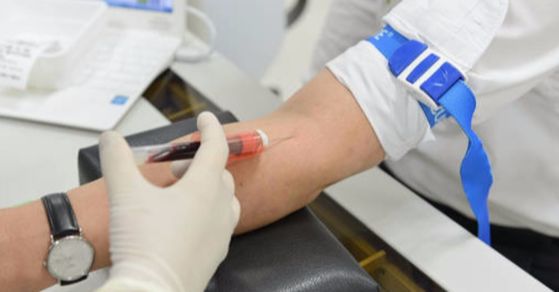
Health checkup image. *Not directly related to the content of the article. Photos Severance Hospital
Suji-gu, Yongin-si, Gyeonggi-do appeared as’Healthy Village’ Suzy-gu residents have a healthy life of 75.3 years. It is the best in the country. Healthy life span is the average life span minus the period of inactivity due to illness or injury. According to the Korea Institute for Health Promotion, it is an indicator that focuses on’how long can I live healthily?’ It is different from life expectancy, which averages out how long a born baby (0 years old) will live in the future.
National Health Promotion Comprehensive Plan
The Ministry of Health and Welfare announced the 5th Comprehensive National Health Promotion Plan (2021~2030) on the 27th. This comprehensive plan includes the goal of extending the healthy lifespan (70.4 years old as of 2018) to 73.3 years old by 2030. It also said that it would reduce the gap in health life by region and income.
As of 2018, Suji-gu, Yongin, out of 250 cities, counties, and gus nationwide, ranked first at 75.3 years of age. Compared to Yeongdo-gu (62.17 years old) in Busan, which has the lowest health life, there is a difference of 13.13 years old. Bundang-gu, Seongnam-si, Gyeonggi-do, adjacent to Suji-gu, ranked second at the age of 74.92. Seocho-gu (74.52 years old) and Gangnam-gu (74.51 years old) in Seoul ranked 3rd and 4th. Songpa-gu was ninth at the age of 73.54. You can see that there are several’buchon’ areas in 10 yuan.

Health club image. *Not directly related to the content of the article. News 1
Health life of the upper and lower 20% regions 2.7 years old
The top 20% of healthy life expectancy is 71.14 years old. Gangwon Wonju is the case. Conversely, the bottom 20% are 68.4 years old. It is Nam-gu, Gwangju. The gap between the two regions is 2.74 years. In addition, including Cheongyang-gun, Chungnam (age 62.6), Gunwi-gun (age 63.45), Gyeryong-si, Chungnam (age 65.44), Yeongdeok-gun, Gyeongbuk (age 65.62), Cheongju-si, Chungbuk (66.21), Seo-gu, Busan (66.44), Sangju-si, Gyeongbuk (66.52) , Uiryeong-gun in Gyeongnam (66.58 years old) and Geumsan-gun in Chungnam Province (66.99 years old) had relatively low health lives.
The higher the income, the healthier
There was a large difference in health life span according to income level. Looking at the analysis results, the higher the income, the healthier. The government analyzed income levels divided into five groups. In the case of the 5 groups with the highest income (the top 20%), the healthy lifespan was 73.3 years old. On the other hand, the lowest income group 1 (the bottom 20%) was 65.2 years old. It is 8.1 years old. The gap in health life between the two groups widened. It narrowed down to 6.7 in 2012, but it was 7.3 → 7.4 → 7.6 → 7.6 → 8.1 years from 7.1 in 2013. That’s why health equity issues are raised. The government plans to narrow this gap to under 7.6 years by 2030.
![The top 20% of Korean income brackets showed higher life expectancy and healthy life expectancy than the bottom 20%. [중앙포토]](https://i0.wp.com/pds.joins.com/news/component/htmlphoto_mmdata/202101/27/f608c0e6-f594-40b8-aeb2-2b97a43b6828.jpg?w=560&ssl=1)
The top 20% of Korean income brackets showed higher life expectancy and healthy life expectancy than the bottom 20%. [중앙포토]
Women’s healthy life expectancy to increase by 75 by 2030
In addition, by gender, the healthy life span of women was estimated to be 75 years old in 2030. As of 2018, it is 72.4 years old. It means getting healthier by age 2.6. During the same period, the male was 71.4 years old (68.3 years old in 2018). However, it was estimated that the prevalence of women at 12.7 years old was longer than that of men (11.2 years old). However, women’s life expectancy (87.7 years old) is expected to be higher than that of men (82.6 years old).
“The gap in health life between the top 20% and the bottom 20% of the income level will be lowered to 7.6 years from 8.1 years old in 2018 to 7.6 years old by 2030,” said Isran, director of health policy at the Ministry of Welfare. I am aiming to do it.”
Reporter Minwook Kim [email protected]
